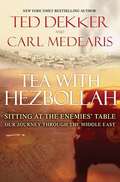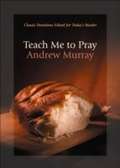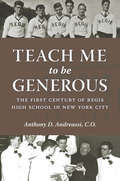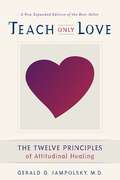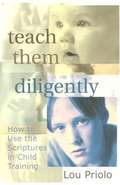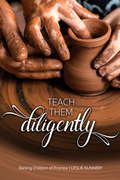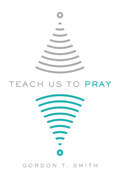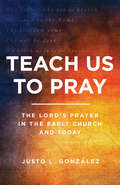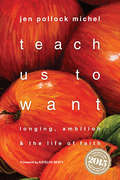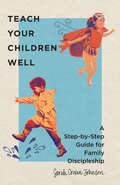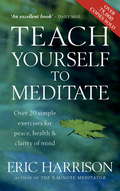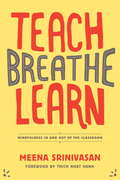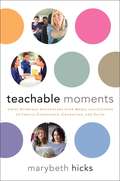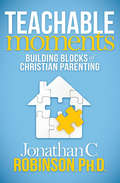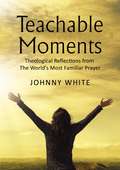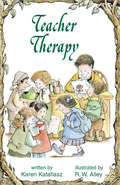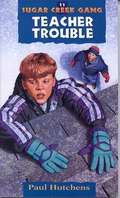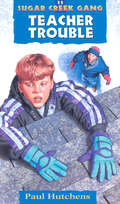- Table View
- List View
Tea and Sympathy (Mystery and the Minister’s Wife #25)
by Carol CoxCabin fever... When Kate wakes one morning, only to realize she's been sleeping for days, she is shocked and alarmed. How did she sleep for so long? And why does she feel so weak? With Paul at her side, Kate concludes that she's come down with a nasty flu and decides to continue working on her current mystery from bed. Mayor Lawton Briddle has been accused of a horrendous financial crime, and Kate is convinced he's innocent. But when she digs back into her work, not only is her memory fuzzy, but she's also missing any real evidence of the research she has already done. Homebound, recovering at a snail's pace and working from ground zero, Kate must mentally retrace her steps to solve the mystery of Lawton's indictment, while also getting to the bottom of why her memory has lapsed.
Tea and Touchdowns (Tearoom Mysteries #12)
by Erin Keeley MarshallAutumn's colorful splendor reaches its pinnacle in Lancaster, Maine, as the high school football team preps for a game with its biggest rival. To promote Tea for Two, Jan Blake and Elaine Cook take their tea and goodies to the town's annual Fall Fest. But when Jan joins a horseback trail ride, she finds a woman injured on the ground, with her horse standing nearby. Was it an accident? As the clues add up, the cousins soon-realize there's more to the story than meets the eye. Meanwhile, Jan's son, Brian, begins spending more time with her than usual. Is he okay? And Archie Bentham returns from New York after meeting with an art authenticator, only to learn that determining whether his father painted Elaine and Jan's beautiful flea-market find might be more of a challenge than he'd hoped for. Mix together one stately Victorian home, a charming lakeside town in Maine, and two adventurous cousins with a passion for tea and hospitality. Add a large scoop of intriguing mystery and sprinkle generously with faith, family, and friends, and you have the recipe for Tearoom Mysteries.
Tea is For Treasure (Tearoom Mysteries #8)
by Kristin EckhardtAs the first harbingers of spring reach the tearoom, so does an unexpected package. When the cousins open it, they discover a beautiful white china teapot with a lovely floral design. But it is what's inside that really captures Elaine's and Jan's imagination: a hand-drawn map and cryptic poem giving clues to a hidden treasure. The intrigue only deepens when Archie Bentham's friend Nigel Fox stumbles into the tearoom with a gash on his forehead and a warning for them. Could his arrival be connected to the map and poem? Soon other would be treasure hunters arrive, and the sleuthing cousins are determined to not only find the treasure but also get to the bottom of the mystery surrounding it. Meanwhile, as Elaine and Jan piece together the last of the clues they've collected about the antique sapphire ring, they discover that its story is even more intriguing than they suspected. Mix together one stately Victorian home, a charming lakeside town in Maine, and two adventurous cousins with a passion for tea and hospitality. Add a large scoop of intriguing mystery and sprinkle generously with faith, family, and friends, and you have the recipe for Tearoom Mysteries.
Tea with Hezbollah: Sitting at the Enemies’ Table, Our Journey Through the Middle East
by Ted Dekker Carl MedearisIs it really possible to love one's enemies? That's the question that sparked a fascinating and, at times, terrifying journey into the heart of the Middle East during the summer of 2008. It was a trip that began in Egypt, passed beneath the steel and glass high rises of Saudi Arabia, then wound through the bullet- pocked alleyways of Beirut and dusty streets of Damascus, before ending at the cradle of the world's three major religions: Jerusalem. Tea with Hezbollah combines nail-biting narrative with the texture of rich historical background, as readers join novelist Ted Dekker and his co-author and Middle East expert, Carl Medearis, on a hair-raising journey. They are with them in every rocky cab ride, late-night border crossing, and back-room conversation as they sit down one-on-one with some of the most notorious leaders of the Arab world. These candid discussions with leaders of Hezbollah and Hamas, with muftis, sheikhs, and ayatollahs, with Osama bin Laden's brothers, reveal these men to be real people with emotions, fears, and hopes of their own. Along the way, Dekker and Medearis discover surprising answers and even more surprising questions that they could not have anticipated-questions that lead straight to the heart of Middle Eastern conflict. Through powerful narrative Tea With Hezbollah will draw the West into a completely fresh understanding of those we call our enemies and the teaching that dares us to love them. A must read for all who see the looming threat rising in the Middle East.
Teach Me To Pray
by Andrew Murray Nancy RenichIn 31 short, readable chapters, the Christian is led through a study of prayer which is designed to develop, strengthen, and maintain a rich prayer life. The book also includes a chapter about the life and work of George Muller, a well-known 19th century preacher.
Teach Me to Be Generous: The First Century of Regis High School in New York City
by Anthony D. Andreassi C.O.Teach Me to Be Generous tells the remarkable story of Regis High School, the Jesuit school on New York’s Upper East Side that was founded in 1914 by an anonymous donor as a school for Catholic boys whose families could not otherwise afford a Catholic education. Enabled by the philanthropy of the founding family for nearly a century, and now by alumni and friends carrying on that tradition of generosity, Regis has been able to provide tuition-free, all-scholarship education for its entire history. It also holds the distinction of being the first free-standing Jesuit high school in the United States, with no connection to any Jesuit colleges or universities.Regis High School’s unique story is told by an engaging storyteller and historian who has taught at the school for more than ten years. Father Andreassi offers captivating glimpses into the lives and daily experiences of Regis’s students and faculty while chronicling the development of the school’s educational philosophyand spiritual approach in its first century. Filled with entertaining anecdotes alongside wider historical context and illuminating statistical analysis, Teach Me to Be Generous tracks Regis High School through the decades of the twentieth century to the present day—from the generosity of a devout Catholic widow, through the Depression and World War II, to changes in demographics of the Catholic community and shifts in the landscape of Catholic education in New York City. During the school’s first few decades, Regis admitted thousands of Catholic boys, mostly from poor or lower-middle-class families, helping prepare them for success in college and leadership positions in the professions. Because of the closing of dozens of urban Catholic schools and the general decline of the quality of New York City’s public schools, in more recent years the school has faced the challenge of remaining true to its mission in offering an education to Catholic boys “who otherwise would not be able to afford a Catholic education.”Teach Me to Be Generous paints a vivid portrait of the first one hundred years of an exceptional institution and looks with hope and confidence to its future.
Teach Only Love: The Twelve Principles of Attitudinal Healing
by Gerald G. JampolskyIn 1975, Jerry Jampolsky cofounded the Center for Attitudinal Healing in Tiburon, California, where people with life-threatening illnesses practice peace of mind as an instrument of transformation. Based on the healing power of love and forgiveness, the 12 principles developed at the center, and explained in this book, embrace the idea that total giving and total acceptance are crucial to the healing process and that attitudinal healing can lead to harmony, joy, and life without fear.
Teach Them Diligently How to Use the Scriptures in Child Training
by Lou PrioloScripture based child training including several helpful appendices.
Teach Them Diligently: A Parenting Mandate with a Promise
by Leslie NunneryIt’s easy to say we trust Christ for everything, but are we living that truth? We’ve been given clear instruction in a powerful promise for parents. God tells us in Deuteronomy to “teach our children diligently.” This passage and many others give us great insight as to how to do that and enjoy the promised blessing that always accompanies the mandates we are given. Learn the practical view of discipleship parenting, what God expects from parents, and how to put these truths into action See how parenting with the vision of teaching them diligently will intentionally bear fruit and affect change in your own life as well Move beyond giving lip-service to what you believe, and make the conscious choice to rely on the wisdom of God’s holy instruction for your life and parenting. So, why are we as Christian parents still uncertain? Why do we live in fear? Why are we losing our children in record numbers? What can we do about it?
Teach Us to Pray
by Gordon T. SmithOne of the most basic and vital dimensions of the Christian life is the practice of prayer. Frequently our prayers begin with a petition or request, so the content of our prayers is informed by our circumstances. But what if the opposite were true? What if we allowed our prayers to inform our lives? What would our lives be like if prayer altered our living and began to shape the contours and content of our daily experiences? Gordon Smith invites us to learn three movements of prayer—thanksgiving, confession, and discernment—in order to be formed and transformed by prayers that seek God's kingdom "on earth as it is in heaven." Whether you are a beginner in the life of prayer or further along, this small book is a resource for deepening your prayer practice.
Teach Us to Pray: The Lord's Prayer in the Early Church and Today
by Justo L. GonzálezThe Lord&’s Prayer is one of the oldest and most widely used short summaries not only of how Christians pray but of what they believe about God, the world, and humankind. Justo González, whose textbooks have taught Christian doctrine and history to thousands of pastors, draws on scripture, the Church Fathers, and his own life experience to make this vital prayer from the Christian past comprehensible for readers who want to understand—and live—Christianity in the present. Teach Us to Pray is for all who are learning or practicing Christian discipleship and ministry, from college students and motivated laypeople to veteran pastors and teachers.
Teach Us to Want: Longing, Ambition and the Life of Faith
by Jen Pollock MichelLogos Bookstores' 2015 Best Book in Spirituality/DevotionalChristianity TodayGranted the Digital Book World QED Seal for quality in ebook designHonorable Mention, 2014 Best Book of the Year from Byron Borger, Hearts and Minds Bookstore
Teach Your Children Well: A Step-by-Step Guide for Family Discipleship
by Sarah Cowan JohnsonHalf of Christian high school students walk away from their faith after graduation.Sarah Cowan Johnson unpacks how parents can have an active discipleship role in forming their children's faith, with age-appropriate insights and strategies for different developmental stages. She shows how we can identify God moments, facilitate spiritual encounters, clarify emerging beliefs, and encourage new faith habits in our children.Filled with exercises and activities for families to do together, this handbook is an essential resource for discipling children with confidence and creativity.
Teach Yourself Buddhism
by Clive ErrickerDiscover Buddhism and its role in our world .Covering all aspects of this fascinating religion from the life of the Buddha and his teaching to the different Buddhist schools and the practicalities of pursuing a Buddhist way of life,Teach Yourself Buddhismis a comprehensive and informative guide. It explores the diversity of Buddhism and how it has adapted to its growing global presence and new cultural environments as well as the relevance of Buddhist teachings in our world today. This fully updated new edition also considers what is undoubtedly the greatest challenge facing the faith--how Buddhism is to be transmitted to a new generation. .
Teach Yourself Islam
by Ruqaiyyah Waris MaqsoodGiven recent political developments, many want to know more about Islam. This accessible and informative guide covers not only Islamic history, theology, and the life of Muhammad, but also the role of the religion in shaping world politics. With this book, you'll come away with a well-rounded understanding of Islam and its various sects worldwide. Covers fundamentalism and terrorism in the name of Islam Explains the Qur'an and its teachings Describes the practicalities of being a Muslim in the 21st century
Teach Yourself Philosophy of Religion
by Mel ThompsonThe philosophy of religion examines the general ideas and principles upon which religion is based. It takes the beliefs that religious people hold to be true. The philosophy of religion is not just about logical arguments but about the meaning and significance religion has in people's lives, and what it is that leads some people to follow and others to reject a religion. The philosophy of religion takes religious beliefs and asks how they are to be understood, if they make sense, and if they fit with the rest of our knowledge of the universe.
Teach Yourself To Meditate: Over 20 simple exercises for peace, health & clarity of mind
by Eric HarrisonA clear and practical guide to learning meditation techniquesMany people are turning to meditation as an effective way to relax and find inner peace. Regular meditation can help you to combat stress, improve your general health, increase your awareness and boost your capacity to think clearly and creatively. Teach Yourself to Meditate is the ideal guide for everyone who wants to learn this powerful technique. This excellent book explains what meditation is, why it works and how to do it, as well as the 10 core meditation practices which work best for everyone. Throughout the book there are also easy-to-follow exercises and enjoyable 'spot meditations' which you can do any time, anywhere. By investing just a few minutes a day, you will learn a skill that will greatly improve the quality of your life.
Teach, Breathe, Learn: Mindfulness in and out of the Classroom
by Meena SrinivasanIn Teach, Breathe, Learn, Meena Srinivasan highlights how mindfulness can be an effective tool in the classroom. What makes this book truly unique is her perspective as a classroom teacher, wrestling daily with the conditions about which she writes. <P> <P> "Teach, Breathe, Learn provides accessible, practical application of mindfulness to overcome challenges faced during the school day." Testimonials from students and colleagues are woven throughout the book. Teach, Breathe, Learn is designed for educators at all levels, parents interested in sharing mindfulness with their children, and anyone curious about how to cultivate their own mindfulness practice and eventually teach mindfulness to others.Part 1 helps teachers develop compassion and shift from "reacting" to "responding" to demands.Part 2 offers techniques for cultivating loving-kindness, gratitude and seeing students, colleagues, and parents as oneself.The last section of the book introduces a curriculum teachers can use to incorporate mindfulness into their classroom, replete with lesson plans, handouts, and homework assignments.
Teachable Moments
by Marybeth HicksNationally syndicated columnist and media advisor on all things parenting, Marybeth Hicks outlines the overarching issues and objectives in using daily encounters with the culture to impart the values and virtues of Christianity. Through entertaining and instructive questions and answers, she provides concrete examples of teachable moments that will ring true for every family.Never have Christian families been so challenged by the world around them to instill and instruct their children in the tenets of their faith. Moral relativism literally seeps into every facet of family life and saturates our popular culture. A ubiquitous media presence that defines our daily experience also is defining the attitudes and behaviors of those who consume it. Yet within this pervasive secular culture, Christian families encounter "teachable moments," those unplanned but unmatched opportunities to put their faith into action and live out the values and virtues embodied in Jesus Christ. When looking for teachable moments, parents, and coaches must approach each day with intentionality, seeking out and capitalizing on opportunities to incorporate life lessons into every day experiences amid the culture. Teachable moments might be as simple as incorporating values about empathy and compassion in young friendships, or as complex and consequential as understanding the nature of the culture's destructive messages about human sexuality. They might present themselves in song lyrics, teacher's comments, television shows, social media interactions, and current events. Most certainly, teachable moments emerge in parenting decisions, family relationships, school situations, and in opportunities for freedom and responsibility. Teachable Moments outlines the overarching issues and objectives in using daily encounters with the culture to impart the values and virtues of Christianity. Through entertaining and instructive questions and answers, author Marybeth Hicks provides concrete examples of teachable moments that will ring true for every family.
Teachable Moments: Building Blocks of Christian Parenting
by Jonathan RobinsonCommunication strategies for building a better relationship with your children, from a psychologist who has worked with families for over three decades. Are you frustrated when your child is not responsive to your efforts to be a good parent? Are you shaking your head in confusion or barking orders as a last resort in getting through to him/her? Do you wish for more quality time with your child? Parenting is the toughest job—for which most parents have no training. We tend to emulate our own parents, for good or for bad. In the Bible, Proverbs 22:6, we are told to &“train your children in the ways of the Lord, so that when they are old, they will not depart from Him.&” Teachable Moments: Building Blocks of Christian Parenting is a source book for parents and helping professionals who want both the spiritual context and the step-by-step practical parenting tools with which to be effective, engaged, Christian parents. Are you ready to move from surviving to thriving in your relationship with your children? You will learn: –Nine parenting perspectives to guide your understanding of your child –How communication defines relationship and the four distinct types of communication to use when your child is not having problems –Eleven specific communication tools and behavior management strategies, and more The author, a licensed clinical psychologist with decades of experience in practice, also includes &“Learn the Concept&” exercises embedded within the chapters—so you can practice these tools and strategies and start enjoying a better relationship with your children today.
Teachable Moments: Theological Reflections from The World’s Most Familiar Prayer
by Johnny WhiteTeachable Moments consists of theological reflections on the world's most familiar prayer taken from the lips of Jesus Himself, repeated on a weekly basis in churches throughout the world. Many who claim the name Christian are captive to a culture that is in subtle if not direct contradiction to the radical implications of this Prayer. Teachable Moments confronts that unhealthy captivity. The radical nature of the Creator God as Abba Father, and what it means to be citizens of God's Kingdom &“on earth as it is in heaven,&” deserves to be taken seriously.Written in a readable and thought-provoking style, Teachable Moments will prompt new thoughts about Jesus&’ radical theology of God as Abba Father. When Jesus taught his disciples this brief prayer, he had an agenda much larger than just words to pray. He was concerned with our understanding of God and the nature of our relationship with God. He was teaching about the nature of Kingdom citizenship on earth as it is in heaven, the nature of forgiveness which breaks the unhealthy cycle of revenge, the nature of temptation and pervasive evil in the world. Jesus&’ goal was to correct and redirect all the wrong-headed misconceptions the world has accumulated about the one true God who He understood as Abba Father. Finally, this provocative book asks the all-important question: What kind of Jesus says and teaches things like these? Who are we following?Teachable Moments is intended for the most faithful person occupying a pew on Sunday morning repeating these familiar words of The LORD&’s Prayer, but also it is for the person who never enters a church but nonetheless knows the words by memory. Adult Bible Study groups will find this book a beneficial curriculum for Bible study and discussion. Pastors will find these theological reflections helpful in sermon preparation on The LORD&’s Prayer.
Teacher Therapy
by R. W. Alley Karen KatafiaszTeacher Therapy can't eliminate all of the tough times, but its sound and encouraging advice will help you take care of yourself and bring out the best in those you teach!
Teacher Trouble (Sugar Creek Gang #11)
by Paul HutchensThe Sugar Creek Gang continues to struggle with their new teacher, Mr. Black. They cause some of the trouble themselves when they build a snowman that looks a lot like him and he stumbles across it. Then someone outside the gang tries to frame the Sugar Creek Gang by putting a board over the chimney at school. Learn important lessons about honesty and respect with the Sugar Creek Gang. The Sugar Creek Gang series chronicles the faith-building adventures of a group of fun-loving. courageous Christian boys. These classic stories have been inspiring children to grow in their faith for more than five decades. More than three million copies later, children continue to grow up relating to members of the gang as they struggle with the application of their Christian faith to the adventure of life. Now that these stories have been updated for a new generation, you and your child can join in the Sugar Creek excitement. Paul Hutchens's memories of childhood adventures around the fishing hole, the swimming hole, the island, and the woods that surround Indiana's Sugar Creek inspired these beloved tales.
Teacher Trouble (Sugar Creek Gang Original Series #11)
by Paul HutchensThe tales and travels of the Sugar Creek Gang have passed the test of time, delighting young readers for more than fifty years. Great mysteries with a message, The Sugar Creek Gang series chronicles the faith-building adventures of a group of fun-loving, courageous Christian boys. Your kids will be thrilled, chilled, and inspired to grow as they follow the legendary escapades of Bill Collins, Dragonfly, and the rest of the gang and see how they struggle with the application of their Christian faith to the adventure of life. The Sugar Creek Gang continues to struggle with their new teacher, Mr. Black. They cause some of the trouble themselves when they build a snowman that looks a lot like him and he stumbles across it. Someone outside the gang tries to frame the Sugar Creek Gang by putting a board over the chimney at school. Learn important lessons about honesty and respect with the Sugar Creek Gang.
Teacher Trouble (Sugar Creek Gang Original Series #11)
by Paul HutchensThe tales and travels of the Sugar Creek Gang have passed the test of time, delighting young readers for more than fifty years. Great mysteries with a message, The Sugar Creek Gang series chronicles the faith-building adventures of a group of fun-loving, courageous Christian boys. Your kids will be thrilled, chilled, and inspired to grow as they follow the legendary escapades of Bill Collins, Dragonfly, and the rest of the gang and see how they struggle with the application of their Christian faith to the adventure of life. The Sugar Creek Gang continues to struggle with their new teacher, Mr. Black. They cause some of the trouble themselves when they build a snowman that looks a lot like him and he stumbles across it. Someone outside the gang tries to frame the Sugar Creek Gang by putting a board over the chimney at school. Learn important lessons about honesty and respect with the Sugar Creek Gang.

